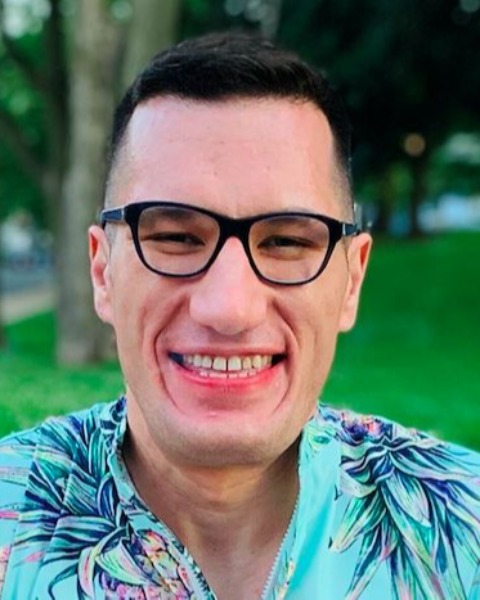Category: LGBTQ+
Symposium 7 - Population-based Insights into How Stigma “Gets Under the Skin”: Moving Towards a Biopsychosocial Mediation Framework of Sexual Minority Wellbeing
Level of Familiarity: All
Recommended Readings: Hatzenbuehler, M. L. (2009). How does sexual minority stigma “get under the skin”? A psychological mediation framework. Psychological Bulletin, 135(5), 707–730. https://doi.org/10.1037%2Fa0016441, Christian, L. M., Cole, S. W., McDade, T., Pachankis, J. E., Morgan, E., Strahm, A. M., & Kamp Dush, C. M. (2021). A biopsychosocial framework for understanding sexual and gender minority health: A call for action. Neuroscience and Biobehavioral Reviews, 129, 107–116. https://doi.org/10.1016/j.neubiorev.2021.06.004, Diamond, L. M., & Alley, J. (2022). Rethinking minority stress: A social safety perspective on the health effects of stigma in sexually-diverse and gender-diverse populations.Neuroscience and Biobehavioral Reviews, 138,104720. https://doi.org/10.1016/j.neubiorev.2022.104720, ,
-

Nathan Hollinsaid, B.S. (he/him/his)
Clinical Science Doctoral Student
Department of Psychology, Harvard University
Cambridge, Massachusetts -
MH
Mark Hatzenbuehler, Ph.D. (he/him/his)
John L Loeb Associate Professor of the Social Sciences
Harvard University
Cambridge, Massachusetts -

Nathan Hollinsaid, B.S. (he/him/his)
Clinical Science Doctoral Student
Department of Psychology, Harvard University
Cambridge, Massachusetts -
RB
Richard Bränström, Ph.D. (he/him/his)
Associate professor, licensed psychologist
Karolinska Institutet
Stockholm, Stockholms Lan, Sweden -

John Pachankis, Ph.D.
Susan Dwight Bliss Associate Professor of Public Health (Social and Behavioral Sciences)
Yale School of Public Health
New Haven, Connecticut -
ML
Micah Lattanner, PhD
Post-doctoral Fellow
Harvard University
Cambridge, Massachusetts
Chair(s)
Discussant(s)
Presenter(s)
For more than a decade, the psychological mediation framework (Hatzenbuehler, 2009) has served as an important field manual for clinicians and interventionists working with sexual minority (e.g., lesbian, gay, bisexual) clients. This framework posits that stigma-related stressors “get under the skin” by creating elevations in cognitive (e.g., rumination), affective (e.g., emotion dysregulation), and social (e.g., isolation) risk factors for psychopathology. These mechanisms, in turn, have been targeted by interventions adapted for sexual minorities, leading to promising reductions in this population’s inequitable burden of mental and behavioral health morbidity (e.g., Pachankis et al., 2015, 2020). Although researchers have extensively validated various aspects of the framework (e.g., Lattanner et al., 2022), many of the mediating mechanisms and pathways originally posited by Hatzenbuehler (2009)—as well as their biological and behavioral correlates—are heretofore unexamined.
To remedy this gap, our symposium highlights four sets of studies conducted with diverse sexual minority samples that comprehensively expand upon the psychological mediation framework. This research, led by interdisciplinary scholars at varying career stages, integrates multifaceted stigma conceptualizations (i.e., internalized, interpersonal, and structural stigma)—along with novel measures (e.g., LGBTQ-specific hypervigilance) and innovative measurement approaches (e.g., implicit shame, inflammatory biomarkers)—into longitudinal, population-based studies in the US and abroad. Together, these studies suggest that stigma operates at multiple levels and over the lifespan to undermine sexual minorities’ psychological and relational wellbeing via a host of previously understudied biopsychosocial processes. Specifically, findings implicate shame, hypervigilance, inflammation, and thwarted belonging needs as important mechanisms prospectively linking sexual minorities’ stigma experiences to adverse individual (e.g., anxiety, depression, suicidality) and interpersonal (e.g., loneliness) outcomes.
After these four talks, our discussant will draw on their extensive experience studying the role of stigma in shaping population health inequalities to reflect on the decade-plus of research progress following the publication of the psychological mediation framework and to offer future directions for uncovering additional biopsychosocial mechanisms that imperil wellbeing among sexual minorities and other stigmatized populations. The following topics will be discussed: (1) leveraging methodological and measurement advancements to elucidate optimal treatment targets to reduce stigma’s deleterious health effects; (2) refining existing cognitive-behavioral interventions for sexual minorities to explicitly address the biopsychosocial mechanisms identified in this symposium; and (3) enhancing the understanding of how stigma-related experiences and stressors engender these more general biopsychosocial stress processes.
Learning Objectives:
- Explain 4 biopsychosocial processes through which stigma contributes to sexual minority clients’ elevated risk for mental health adversity.
- Apply 3 measurement approaches to assess indicators of biopsychosocial stress processes affected by stigmatization.
- Identify 3 types of stigma experiences that compromise sexual minority wellbeing by influencing biopsychosocial stress responses.
- Utilize LGBQ-affirming cognitive-behavioral therapy techniques to enhance sexual minority health by addressing biopsychosocial stressors.
- Discuss novel approaches for enhancing the efficacy of existing cognitive-behavioral interventions adapted for sexual minority clients.

